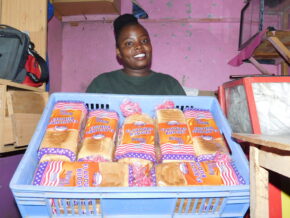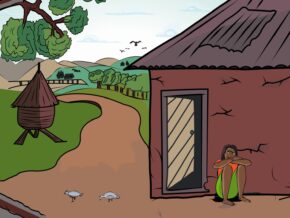WHAT WE DO
We believe that a lot more can be done to support Kenyan migrant workers in need.
Photo credit: Aline Deschamps
Many Kenyan Migrant workers become stranded in Middle Eastern countries after
escaping abusive and exploitative working conditions. When they
return home, they arrive traumatised with no financial resources.
Our goal is to support their reintegration through:
Cash transfers
Many returnees come back home nothing due to cases of wage theft and job losses. We provide one off cash transfers to returnees for emergencies and basic needs.
Livelihood grants
We provide small grants to enable returnees to develop income generating activities such as macrobusinesses that create livelihood for them.
Psychosocial support
Returnees often have survived abuse and exploitation at the hands of their employers and recruitment agencies. We provide free counselling sessions and other forms of psychosocial support.
In our blog, we share impactful stories of the resilient women
returnees who we have supported.



